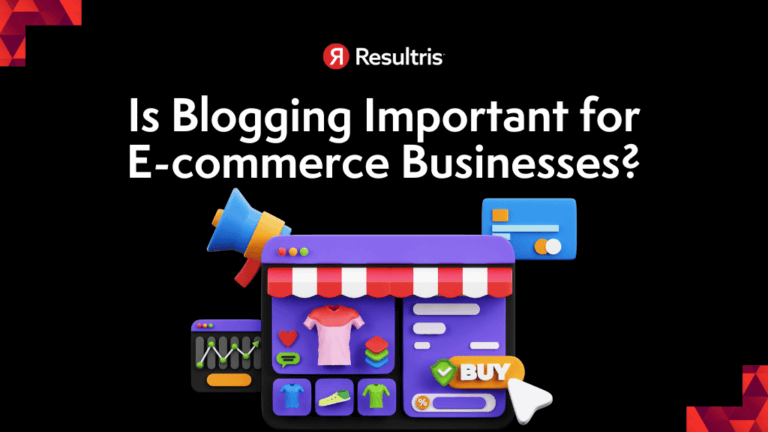

Yes, blogging is essential for e-commerce businesses to build brand visibility, engage with customers, and drive organic traffic. By creating relevant, timely, and valuable content, businesses can attract potential buyers and strengthen customer relationships, increasing sales and loyalty.
If you’re an e-commerce business owner, your primary focus might be showcasing your products, managing inventory, and streamlining the checkout process. All crucial aspects, no doubt. But amidst all this, many businesses often overlook one powerful tool: Blogging.
Let’s dive into why blogging can be your e-commerce’s secret weapon.
Before customers can buy from you, they need to find you. While you can rely on paid ads, why not capitalize on organic traffic? Blogging helps:
Imagine this: A visitor stumbles upon your blog post, answering their most pressing questions about a product. Who do you think they’ll trust more? A site with just product listings or one that educates them?
Blogging helps:
It’s not just about getting new customers; it’s about keeping them!
✍️ Unlock The Power of Blogging! ✍️
Blogs can be your e-commerce’s magic wand, and we’re here to weave that spell. Explore our specialized Blog Writing Services and let’s create blog posts that resonate, educate, and sell!
A blog isn’t just a tool for attracting visitors; it can actively help convert them into customers.
Your blog’s comment section can be a goldmine.
Blogging and social media go hand in hand.
So, is blogging important for e-commerce businesses? By now, you know the answer is a resounding “Yes!”
In a digital landscape cluttered with competition, standing out is essential. And a blog can be your beacon, illuminating your brand amidst the sea of competitors.
Remember, blogging is more than just words on a page. It’s a strategic tool that can drive traffic, establish authority, engage customers, and, ultimately, boost sales. So, if you haven’t already, it’s time to tap into the powerful world of blogging. And if you ever need content that resonates, you know where to find us.
If you’re new to blogging for your e-commerce business, you probably have questions about getting started and maximizing the benefits. Here are some frequently asked questions and straightforward answers to help your blogging journey.
Aim to publish at least one high-quality post per week. Consistency is critical, and a well-maintained posting schedule helps maintain engagement while improving your search engine rankings.
Focus on subjects that address your customer’s needs and interests. Product reviews, how-to guides, industry news, and company updates are all relevant topics that can add value to your blog and engage your audience.
Research and naturally incorporate relevant keywords, create compelling meta titles and descriptions, and utilize header tags for proper content organization. Additionally, prioritize internal and external linking to improve your search engine rankings.
Analyze your blog performance through metrics such as page views, time spent on a page, bounce rate, social shares, and conversion rates. Monitoring these KPIs provides insights into user engagement and helps refine your content strategies.
? Elevate Your Content Game! ?
Struggling with creating compelling content for your e-commerce site? We’ve got your back. Dive into our expert Content Writing Services and let’s craft content that not only attracts but converts!




